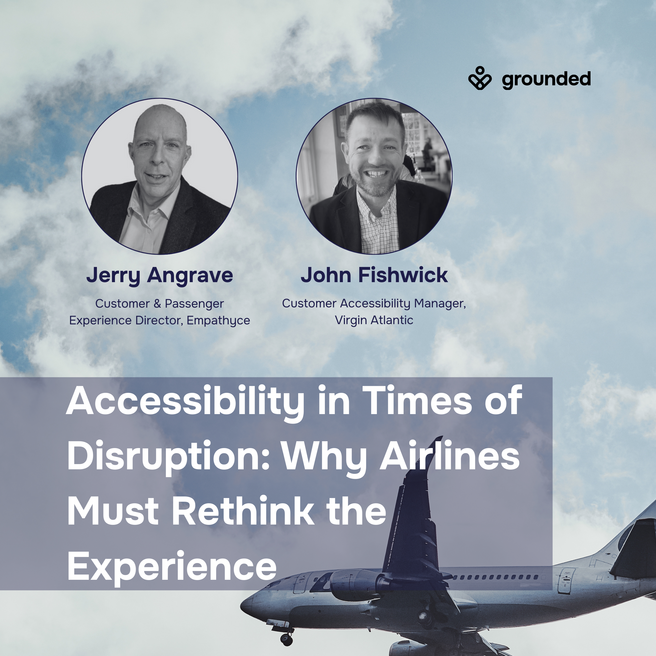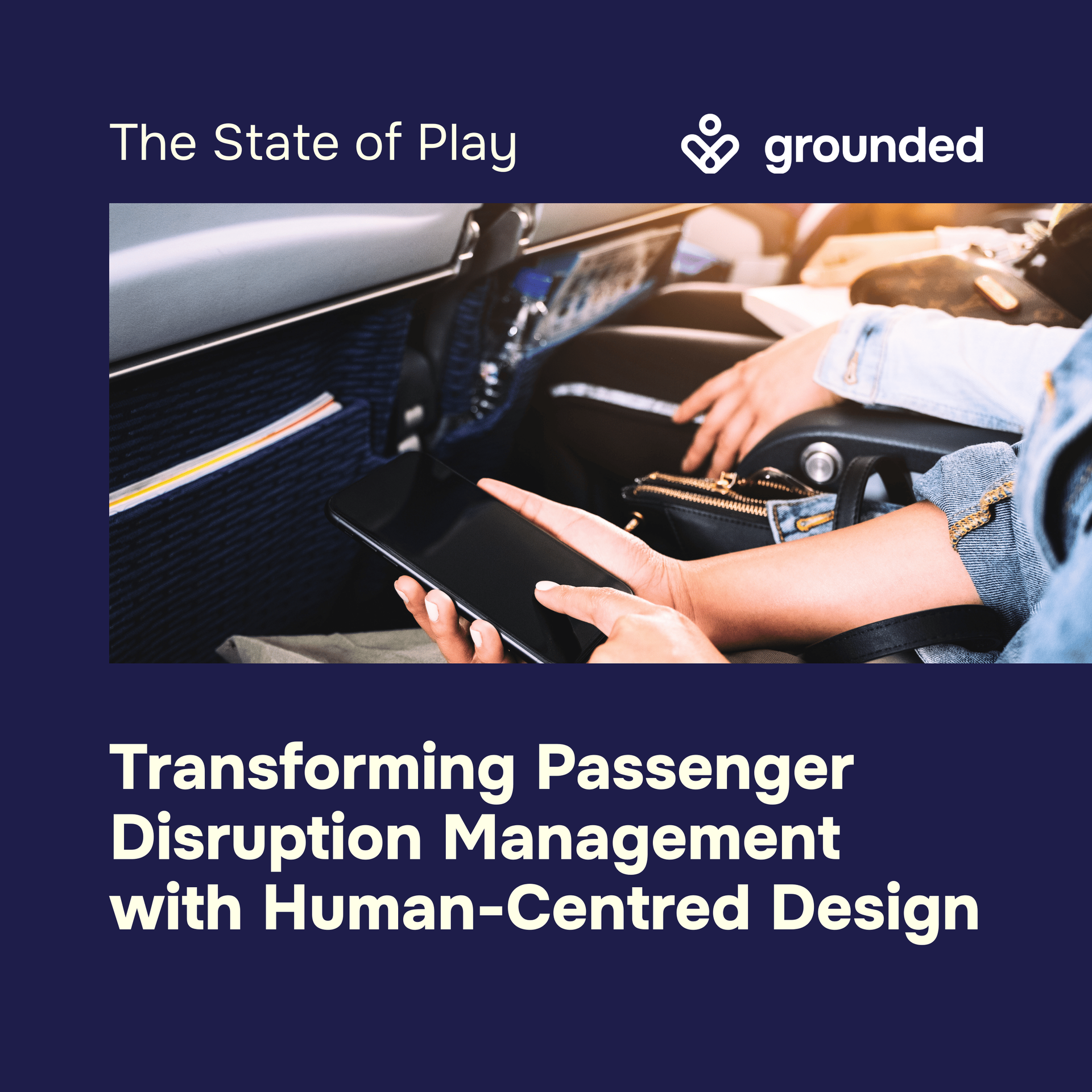What if disruption wasn't a liability—but your biggest loyalty driver? That was the provocative question posed by Dr. Valdimar Sigurðsson, Professor of Marketing at Reykjavik University, during his keynote at Grounded 2024, the only airline summit dedicated to solving passenger disruption.
In a session titled “Airline Consumer Behaviour: From Legacy Practices to Passenger-Centric Recovery,” Dr. Sigurðsson challenged the airline industry to rethink the way it approaches service disruptions—urging a shift from outdated systems to data-driven, personalized recovery experiences that meet the evolving expectations of passengers.
The Paradox Airlines Can’t Ignore
While post-pandemic travel demand is surging, customer dissatisfaction is rising just as fast—especially when things go wrong. Despite the frequency of delays and cancellations, most airlines are still stuck in reactive mode.
“Only 50% of travel leaders have developed robust disruption management technology strategies,” Sigurðsson noted.
This gap is especially stark when compared to industries like hospitality or tech. Brands like Disney, Apple, and Ritz-Carlton are famous for turning service failures into loyalty moments. Airlines, meanwhile, often become cautionary tales in service recovery literature.
What Passengers Really Want: Autonomy and Transparency
One of the most consistent findings across Dr. Sigurðsson’s research is that passengers value being in control—especially during stressful moments.
“It’s not just what happens—it’s how you handle it,” he said. “Apology, explanation, and choice can dramatically shift customer preference.”
Simple gestures—like proactively communicating the reason for a delay, or offering recovery options via mobile—can change the emotional tone of the experience. His research consistently shows that when passengers feel informed and empowered, satisfaction goes up—even when the disruption itself is significant.
Personalised Disruption: Not a Buzzword—A Business Imperative
Using techniques like conjoint analysis and predictive modeling, Sigurðsson and his team have identified the specific actions passengers want during disruptions. The headline? One size does not fit all.
In one study:
- 85% of passengers preferred mobile-based recovery solutions—such as canceling, refunding, or rebooking via link—over queuing at a service desk.
- Many showed
high comfort levels with automated, staff-free solutions—provided they were fast and transparent.
“We need to win one customer at a time,” he emphasized. “This is what Netflix and Amazon are doing. Why not airlines?”
Don’t Treat Disruption as a Side Note — Design for It
Too often, disruption management is bolted onto operations as an afterthought. But Dr. Sigurðsson argues that service recovery deserves its own design language.
“Recovery isn’t just a fix—it’s a branding moment. When things go wrong, that’s when your brand has the most to prove.”
He cited examples like Ritz-Carlton, where frontline staff are empowered to resolve issues on the spot with a $2,000 discretionary budget. Airlines, he said, need similar frameworks—clear protocols, tech enablement, and the authority to act fast in the passenger’s best interest.
From Reactive to Experimental: The Role of Testing
What makes Sigurðsson’s approach unique is his embrace of experimentation. He encourages airlines to treat every disruption not just as a recovery task—but as a test case.
“Every customer interaction is data. Every failure is an opportunity to learn what works and what doesn’t.”
His team runs simulated disruptions to test variables like communication tone, compensation types, and staff behaviors—tracking which combinations generate the most goodwill and long-term loyalty.
The Road Ahead: Mobile, Proactive, Personal
The future of disruption management isn’t just faster—it’s smarter and more human. The best systems will be:
- Mobile-first: putting recovery tools where passengers already are.
- Data-informed: offering relevant options based on context and preference.
- Proactively triggered: not waiting for passengers to complain.
“Flight disruptions are inevitable. But dissatisfaction doesn’t have to be,” Sigurðsson concluded. “The right tools, the right data, and the right mindset can turn recovery into your strongest brand asset.”
Want to Be Part of the Future of Disruption Management?
Grounded 2025 | Join 150+ airline leaders focused on transforming the passenger disruption experience. This is your event. These are your people.
📍
Reykjavik | Sept. 9–10
MEDIA


